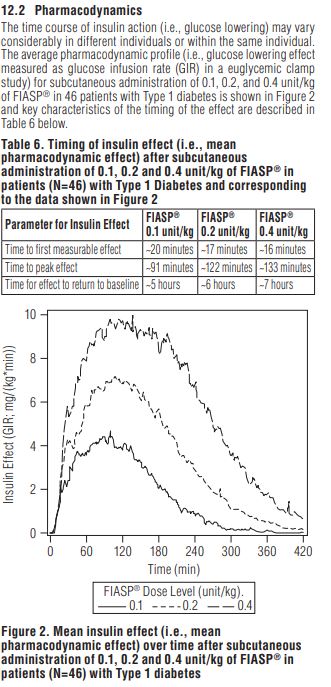December 2022 eNews | Improved Insulin PocketCard and a Little Tenderness
December Greetings

We decided to get a little personal and share some tenderness, alongside our newsy pieces, for this month’s newsletter.
For Coach Beverly, three words come to mind when she considers her family and business this year: reopening, celebration, and reflection. In her article, Beverly shares insights on the evolution of her company and her family over the past 24 years, including a historical photo of her first-ever Medication PocketCard.
Bryanna shares news on her two recent adoptees, Biscuit and Muffin. They are each adorable in their own way, and Bryanna hopes that they will eventually bring out the best in each other.
We welcome Andrew, a nursing student and new team member to our Diabetes Education Services family.
On the news front, we made significant changes to the timing section of our Insulin Medication PocketCards. We have also added Rezvoglar to the Lantus biosimilar list.
You’re invited to take the Question of the Week and read about the ADA/EASD consensus report with our Rationale of the week.
Finally, we want to turn the spotlight on you! We are forever grateful for your willingness to support and believe in a young Diabetes Specialist who had the vision to create a company that uplifts people with diabetes through a blend of science and compassion.
To thank you, our amazing community of diabetes educators and advocates, we will be celebrating our 25th Anniversary throughout 2023 with special events and giveaways. We can’t wait!
In celebration,
Coach Beverly and Bryanna
Featured Articles
- Insulin PocketCard Update
- Coach Bev Reflects
- Meet Biscuit and Muffin
- Welcome Andrew
- Question of the Week
- Rationale of Week
- Meds for Type 2 Webinar
- Upcoming Events – See complete calendar listing
FREE Resources
December Live Webinar Schedule
Join us for our Live Webinar 2023 Updates!
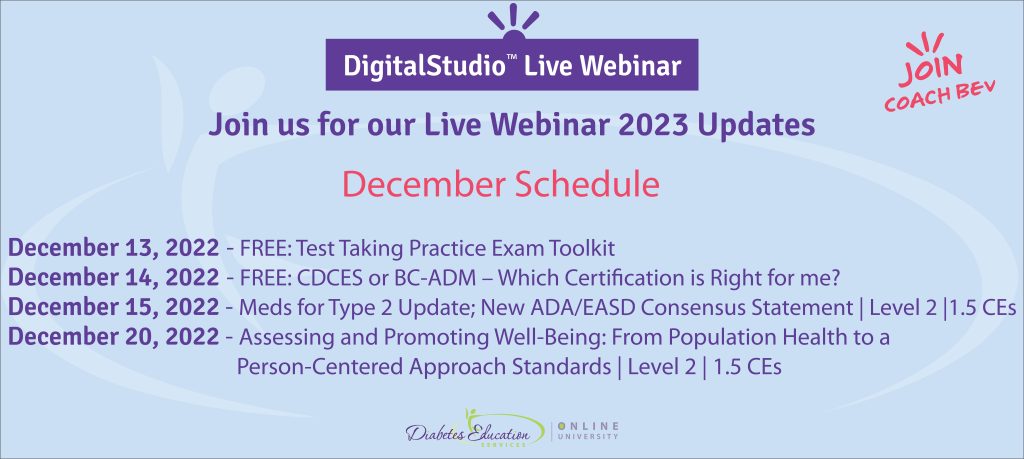
December 13, 2022 – FREE: Test Taking Practice Exam Toolkit
December 14, 2022 – FREE: CDCES or BC-ADM – Which Certification is Right for me?December 15, 2022 – New ADA/EASD Meds Consensus Update| Level 2 |1.5 CE’s
December 20, 2022 – Assessing Well-Being: A Person-Centered Approach | 1.5 CEs
Sign up for Diabetes Blog Bytes – we post one daily Blog Byte from Monday to Friday. And of course, Tuesday is our Question of the Week. It’s Informative and FREE! Sign up below!
The use of DES products does not guarantee the successful passage of the CDCES exam. CBDCE does not endorse any preparatory or review materials for the CDCES exam, except for those published by CBDCE.
Rationale of the Week | “I want to get rid of my diabetes”

For last week’s practice question, we quizzed test takers on PZ who is upset by a recent diabetes diagnosis. 64% of respondents chose the best answer. We want to clarify and share this important information, so you can pass it on to people living with diabetes and your colleagues, plus prepare for exam success!
Before we start though, if you don’t want any spoilers and haven’t tried the question yet, you can answer it below: Answer Question
Question:
PZ is very upset that they were just diagnosed with diabetes and state “I want to get rid of this diabetes”. PZ has a BMI of 35 and elevated LDL cholesterol levels. Both of PZ’s parents had diabetes and died due to complications.
Based on the newly released ADA/EASD Consensus Statement, which intervention is recommended to get blood sugars to target and possibly lead to type 2 remission?
Answer Choices:
- Start an SGLT-2 Inhibitor plus metformin
- Lose 10-15% of current weight
- Immediately initiate a walking and strength training program.
- Encourage insulin pump therapy to preserve beta cell function.
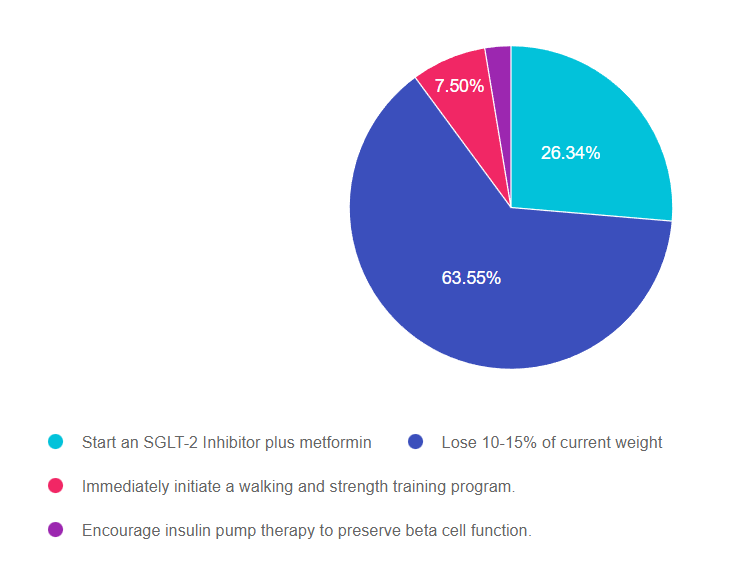
Getting to the Best Answer
Answer 1 is incorrect. 26.34% chose this answer, “Start an SGLT-2 Inhibitor plus metformin.” This was a juicy answer, but not the best answer. The ADA/EASD consensus statement suggests starting combination therapy for people with an A1C of 8.5% or greater. However, in this case study, there is no information on PZ’s glucose level, therefore we can’t suggest initiating combination diabetes therapy.
Answer 2 is correct. 63.55% of you chose this answer, “Lose 10-15% of current weight.” YES, GREAT JOB. According to the ADA/EASD Consensus Statement, weight reduction as a targeted intervention can dramatically improved outcomes. “Weight loss of 5–10% confers metabolic improvement; weight loss of 10–15% or more can have a disease-modifying effect and lead to remission of diabetes, defined as normal blood glucose levels for 3 months or more in the absence of pharmacological therapy”. Plus, weight loss provides benefits that extend beyond glycemic management to decrease cardiometabolic risk factors and improve quality of life. In addition to referring all people with diabetes to a RD/RDN for MNT and encouraging regular activity, we can also recommend newer pharmacologic agents that not only lower glucose but support weight loss.
Answer 3 is incorrect. 7.50% of respondents chose this answer, “Immediately initiate a walking and strength training program.” While strength training and physical activity are both critical to promote health and improve insulin sensitivity, they will probably not be enough, by themselves, to get PZ’s A1C to target.
Finally, Answer 4 is incorrect. 2.60% chose this answer, “Encourage insulin pump therapy to preserve beta cell function.” While many people with type 2 diabetes are opting to use insulin pump therapy, initiating someone on insulin pump therapy before trying lifestyle and pharmacologic agents is not a recommended approach based on the latest consensus statement.
Thank you so much for reading this “Rationale of the Week”. You can download our Medication PocketCard or join our Webinar below for more information.
Want to learn more about this question? Join us for our
Meds for Type 2 Update; New ADA/EASD Consensus Statement
Level 2 | 1.25 CEs
Airs live on Wednesday, December 15th at 11:30 am PST
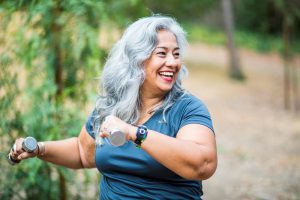
Plan on joining this exciting webinar that walks participants through the newly released, “Management of Hyperglycemia in Type 2 Consensus Report by the ADA and EASD”. These updated guidelines will be incorporated into the 2023 ADA Standards of Care, but you can get a early sneak peak by joining Coach Beverly on December 1st, 2022. She will highlight the revised guidelines with a focus on new elements and exciting changes on how we approach medication management for type 2 diabetes. Together, we will explore clinical factors to consider when determining the best strategy to improve glucose management in people with type 2 diabetes and other co-conditions. There will be a special focus on cardiovascular risk reduction and renal protection and addressing clinical inertia.
Objectives:
- Describe the role of Diabetes Care and Education Specialists in advocating for optimal therapeutic approaches.
- Discuss the application of the new ADA/EASD Guidelines to improve glucose and reduce CV and renal risk.
- List strategies to initiate and adjust oral and injectable therapy using a person-centered approach
Intended Audience: A great course for health care professionals seeking evidence-based information that improves the quality of life and outcomes.
Don’t worry if you can’t make it live. Your registration guarantees access to the recorded version in the Online University.
All hours earned count toward your CDCES Accreditation Information
Sign up for Diabetes Blog Bytes – we post one daily Blog Byte from Monday to Friday. And of course, Tuesday is our Question of the Week. It’s Informative and FREE! Sign up below!
The use of DES products does not guarantee the successful passage of the CDCES exam. CBDCE does not endorse any preparatory or review materials for the CDCES exam, except for those published by CBDCE.
Question of the Week | How come they gave me Rezvoglar?

RZ takes 30 units of glargine (Lantus) each night. However, when they went to the pharmacy to pick up their prescription, they received glargine insulin Rezvoglar instead of their usual Lantus.
RZ asks how the pharmacy can give them a different brand of insulin without checking first? After addressing their emotional response, you provide the following, most accurate Information.
- Rezvoglar is the generic version of (glargine) Lantus.
- Rezvoglar is an interchangeable biosimilar insulin.
- Rezvoglar can not be switched for glargine (Lantus) without provider approval.
- Rezvoglar is a rapid acting human biosimilar insulin analog
Click Here to Test your Knowledge
Want to learn more about this question? Join us for our
Diabetes Fundamentals 2023 Updates | Level 1
$119 | 9+ CEs
Updates air live between Jan 10, 2023-Jan 26, 2023, at 11:30 am PST

This bundle is specifically designed for healthcare professionals who want to learn more about diabetes fundamentals for their clinical practice or for those who are studying for the Certified Diabetes Care and Education Specialist (CDCES) exam.
2023 Webinar Dates
- January 10, 2023 – Class 1 – Getting to the Nitty Gritty 1.5 CEs
- January 12, 2023 – Class 2 – Nutrition and Exercise 1.5 CEs
- January 17, 2023 – Class 3 – Meds Overview for Type 2 – 1.5 CEs
- January 19, 2023 – Class 4 – Insulin Therapy & Pattern Management 1.5 CEs
- January 24, 2023 – Class 5 – Goals of Care – 1.5 CEs
- January 26, 2023 – Class 6 – Hypoglycemia, Sick Days, Monitoring, Foot Care 1.5 CEs
Intended Audience: This library of critical information is designed for individuals or groups of diabetes specialists, including RNs, RDs, Pharmacists, Nurse Practitioners, Clinical Nurse Specialists, Physician Assistants, and other health care providers interested in staying up to date on current practices of care for people with diabetes and preparing for the CDCES Certification Exam.
Don’t worry if you can’t make it live. Your registration guarantees access to the recorded version in the Online University.
All hours earned count toward your CDCES Accreditation Information
Sign up for Diabetes Blog Bytes – we post one daily Blog Byte from Monday to Friday. And of course, Tuesday is our Question of the Week. It’s Informative and FREE! Sign up below!
The use of DES products does not guarantee the successful passage of the CDCES exam. CBDCE does not endorse any preparatory or review materials for the CDCES exam, except for those published by CBDCE.
Insulin PocketCard Updates
Effective Onset, Peak & Action Times
We love and respect our diabetes community. If someone reaches out and asks questions, we listen and investigate. Over the past few months, several of you emailed us, suggesting a needed change to the effective onset, peak and duration times for the very rapid and rapid acting analogs on our PocketCards.
Coach Beverly sprang into action and revisited the package inserts from the various insulin manufacturers in an attempt to solve the timing mystery and set things right.
After taking a closer look at the information, she realized where the confusion came in.
The effectiveness of insulin is not just based on pharmacokinetics, there is also a dose dependent response curve. In studies cited in the package inserts, there are tables with insulin timing based on different doses. In general, the larger the insulin dose, the faster the effective onset of action, but the longer duration of action (see the table for Fiasp below)
In addition, she discovered that terminology has evolved. For example, the onset of insulin (when it appears in the blood circulation) can be as short as a few minutes. However, the most important measurement for real life is time to first measurable effect (effective onset) or the amount of time it takes for the insulin to kick in and start lowering blood glucose levels. In addition, instead of using the term “duration” in the package inserts, they now use, “Time for effect to return to baseline”, which is more accurate but way too long to fit on our Pocketcard.
Called in the experts
To sort through all of this, Coach Beverly reached out to her favorite pharmacist and husband, Kristapor Thomassian, PharmD, BCPS for consultation. After reviewing all of the package inserts and online pharmacy resources, he recommended standardizing the card and using the term “effective” ranges for the action, onset and duration times of various insulins.
These updates are now posted on the latest version of our Insulin PocketCards, which are available for FREE download, or on our CDCES Coach App. You can also purchase your very own 2023 laminated version and they make perfect gifts for team members.
Insulin action has many variables
As we all know, these insulin timing charts just provide a general framework. Insulin absorption, onset, peak and duration results from a complex interplay between the insulin dose, injection site, circulating hormones, skin temperature, metabolic rate and so many other factors. The package inserts recognize that there is about at 20% day-to-day variability of insulins effectiveness and that was in a controlled research environment.
The famous chart by Adam Brown (below) and first posted on DiaTribe, clearly and succinctly highlights 42 factors that affect glucose. The bottom line is that insulin absorption timing varies within individuals. Over time, many people can determine the best time to inject the bolus of insulin or adjust their dose based on personal experience and blood glucose response.
Newly Approved Biosimilar Interchangeable Basal Insulin – PocketCard Update
Under basal insulin glargine, there are now 3 biosimilars listed; Basaglar, Semglee and Rezvoglar. The FDA just announced that Rezvoglar has also been approved as an interchangeable biosimilar along with Semglee. An “interchangeable biosimilar,” means that pharmacists can substitute a person’s Lantus prescription with these cheaper alternatives without needing to consult the healthcare prescriber.
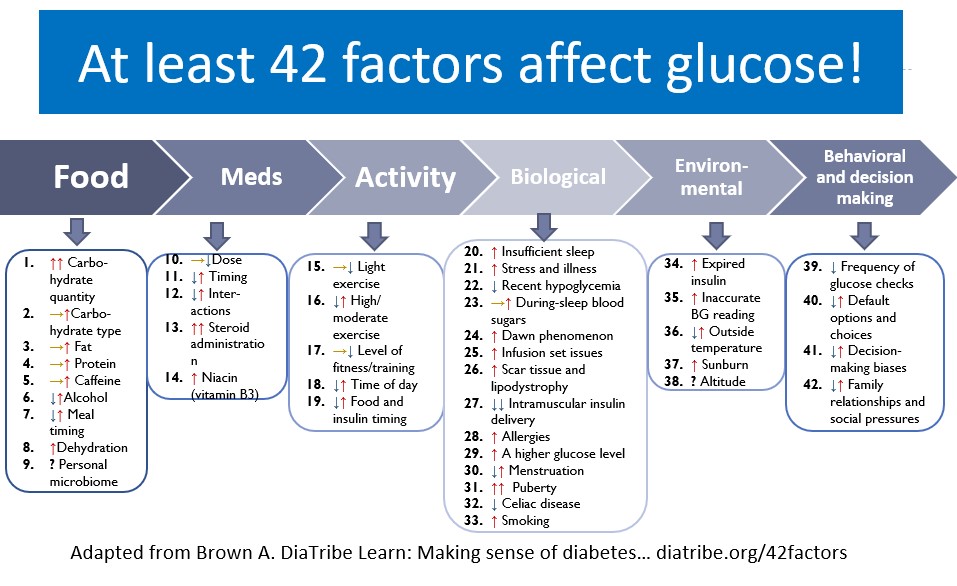
Get Your Own PocketCard
These updates are now posted on the latest version of our Insulin PocketCards, which are available for FREE download, or on our CDCES Coach App. You can also purchase your very own 2023 laminated version and they make perfect gifts for team members.
A special thanks to those of you who alerted us to these needed updates. We love our community!
Want to learn more about this topic? Join us for our
DiabetesEd Boot Camp 2023 Updates | Level 3
$279 | 12+ CEs
Updates air live between Feb 7, 2023-March 9, 2023, at 11:30 am PST

In each webinar, Coach Beverly Thomassian, RN, MPH, CDCES, BC-ADM highlights the critical content of each topic area so you can focus your study time most efficiently. She also launches multiple poll questions that highlight key concepts to help students assess their knowledge and learn the best test-taking strategies.
2023 Webinar Dates
- February 7, 2023 – Class 1 – Diabetes – Not Just Hyperglycemia 1.5 CEs
- February 9, 2023 – Class 2 – Standards of Care & Cardiovascular Goals 1.5 CEs
- February 14, 2023 – Class 3 – Meds for Type 2 – What you need to know 1.5
- February 16, 2023 – Class 4 – Insulin Therapy – From Basal/Bolus to Pattern Management 1.5 CEs
- February 21, 2023 – Class 5 – Insulin Intensive – Monitoring, Sick Days, Lower
- February 23, 2023 – Class 6 – Exercise and Medical Nutrition Therapy 1.5 CEs
- February 28, 2023 – Class 7 – Screening, Prevention, and Treatment of Microvascular Complications
- March 2, 2023 – Class 8 – Coping and Behavior Change 1.5 CEs
- March 9, 2023 – Class 9 – Test-Taking Coach Session (48 Questions) No CE
Intended Audience: This library of critical information is designed for individuals or groups of diabetes specialists, including RNs, RDs, Pharmacists, Nurse Practitioners, Clinical Nurse Specialists, Physician Assistants, and other health care providers interested in staying up to date on current practices of care for people with diabetes and preparing for the BC-ADM or the CDCES certification Exam.
Don’t worry if you can’t make it live. Your registration guarantees access to the recorded version in the Online University.
All hours earned count toward your CDCES Accreditation Information
Sign up for Diabetes Blog Bytes – we post one daily Blog Byte from Monday to Friday. And of course, Tuesday is our Question of the Week. It’s Informative and FREE! Sign up below!
The use of DES products does not guarantee the successful passage of the CDCES exam. CBDCE does not endorse any preparatory or review materials for the CDCES exam, except for those published by CBDCE.
Coach Bev Reflects and Prepares for an Exciting 2023

Three words come to mind when I consider my family and business this year: reopening, celebration, and reflection.
From the start, my wonderful husband and boys have been amazing Diabetes Education Services cheerleaders. They are not only enthusiastic supporters, they roll up their sleeves and help package orders, stuff PocketCards, and run errands for emergency supplies. Both of my boys worked at my company throughout high school and contributed so much in terms of new ideas and products.
As I wrap up my year, I wanted to share a little about me and my family with all of you.
I am thrilled that life has opened up again. It has been so fun to go to football games to watch my high school senior, Jackson leads the marching band as drum major. Our troupe started dancing again and we were invited to perform at a local art museum for a fundraiser. Our family traveled and traipsed all around Scotland and visited family in London. Plus, for the first time in over 2 years, I taught two diabetes seminars LIVE and in person. There is nothing like the deep and profound connection made with others in a shared community.
My oldest son Robert is moving beautifully into adulthood as he studies finance and navigates college life and internships. My younger son, Jackson, loves chemistry and is busy writing essays about his goals and life experiences for college. I have so enjoyed reviewing these essays and learning new details about this wonderfully curious human. My husband continues his work as a critical care pharmacist and hopes to start a residency program at our local community hospital in the future.
Celebration and Reflection:
Diabetes Education Services Marks 25 years in 2023
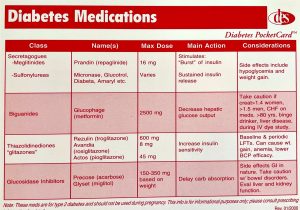
I started Diabetes Education Services in May of 1998, just after the world wide web was introduced and sending messages through something called “email” was possible. At first, my one-person company only offered live courses at hospitals and meeting sites around the country. To engage new customers, I created a 2-sided Medication Post Card (see image), that we would mail out for free in exchange for an email address. My whole family helped me stuff envelopes and handwrite addresses in an effort to grow our community.
My administrative space consisted of a 10×12 foot room in our home, where I juggled writing my monthly newsletter and updating slides, all while raising two busy toddlers. In 2010, I took a leap of faith and decided to try offering courses online. In addition, I hired an amazing marketing team to redo my website and make sure it accurately reflected our company values and message of inclusion and kindness.
Fast forward to today. We have since grown our business to include an amazing team of employees and a newsletter that reaches over 37,000 online subscribers. Our Online University includes over 50 CE courses that we update yearly, plus we offer a CDCES Coach app, blogs, an 8-sided PocketCard, keynote presentations, and more. Our working space has expanded to a studio just steps from my home. This spacious office has room to store all our books and teaching tools plus offers lots of natural light, a view of my pond with abundant bird visitors, and an upstairs recording studio.
2023 is a Year of Gratitude
The truth is, we couldn’t have done any of this without YOU, our community. I am forever grateful for your willingness to support and believe in a young Diabetes Specialist who had the vision to create a company that uplifted people with diabetes through a blend of science and compassion.
To thank our amazing community of diabetes educators and advocates, we will be celebrating our 25th Anniversary throughout the year. Stay tuned. We can’t wait to see what the future holds!
FREE Resource Catalog
- Diabetes Cheat Sheets
- Diabetes Blog Bytes
- Medication PocketCards
- Start Your Certification Journey
- CDCES Coach App
- Free Webinars hosted by Coach Beverly
- Question of the Week

See Full Free Resource Catalog
Sign up for Diabetes Blog Bytes – we post one daily Blog Byte from Monday to Friday. And of course, Tuesday is our Question of the Week. It’s Informative and FREE! Sign up below!
The use of DES products does not guarantee the successful passage of the CDCES exam. CBDCE does not endorse any preparatory or review materials for the CDCES exam, except for those published by CBDCE.
FreeStyle Libre 3 Sensor
People with diabetes are very interested in learning about the newest and smallest FreeStyle Libre 3 sensor produced by Abbott Laboratories. This sensor, approved for people with diabetes 4 years and older offers significant improvements. Here is a summary of features that we hope you find helpful when advising people on the best choice based on their needs.
This latest FreeStyle Libre 3 version offers a smaller sensor that is the size of two stacked pennies. With this upgraded sensor, users no longer have to scan the sensor at least every eight hours to prevent data loss. This 14-day sensor automatically transmits glucose values to their smartphones every minute. There is no reader associated with this sensor, so users will need to have a newer android or iPhone that can support the FreeStyle Libre 3 app. It’s a good idea to download the Freestyle 3 app in the office before the person leaves, to make sure their phone supports the app. If not, they might be better suited to the FreeStyle Libre 2 CGM system that does have a reader in addition to the app.
Sensor insertion is fairly simple. The most important teaching points include making sure the insertion site is washed thoroughly, cleaned with alcohol, and allowed to dry combined with a good site location. Avoid overwrap that is not ‘breathable’ and would occlude the sensor hole, since moisture can accumulate and affect adhesion. In addition, glucose notifications can only be transmitted to phones when they are within 33 feet of the sensor.
The accuracy of this sensor has a MARD rating of sub-8% (lower is better), and demonstrates accuracy during intense blood sugar fluctuations, which can be reassuring for people making insulin adjustments based on results. Alarms settings can be customized with the exception of the default urgent low glucose alarm which alarms when glucose levels hit 55 mg/dl.
No calibration is needed with the Libre 3 Sensor, but there is a one-hour warm-up period. Sharing data is made easy with this sensor. Clinicians can log onto Freestyle Libre View Portal to receive data and support people can use the LibreLinkUp to keep track of blood sugar trends.
Unfortunately, in order for Medicare to cover sensors under DME, there needs to be an associated glucose “reader” in addition to the person taking at least one injection of insulin a day. Given this stipulation, people with Medicare may want to opt for the FreeStyle Libre 2 version that comes with a glucose reader.
With insurance, the cost for 2 sensors is about $65 a month. For those without insurance coverage, the out-of-pocket expense is $130-160.
For more information, you can visit the Abbott website and you are invited to purchase our Virtual Conference with Dr. Diana Isaacs, which provides a detailed review of diabetes technology.
Want to learn more about this question? Join us for our
Meds for Type 2 Update; New ADA/EASD Consensus Statement
Level 2 | 1.25 CEs
Airs live on Wednesday, December 1st at 11:30 am PST

Plan on joining this exciting webinar that walks participants through the newly released, “Management of Hyperglycemia in Type 2 Consensus Report by the ADA and EASD”. These updated guidelines will be incorporated into the 2023 ADA Standards of Care, but you can get a early sneak peak by joining Coach Beverly on December 1st, 2022. She will highlight the revised guidelines with a focus on new elements and exciting changes on how we approach medication management for type 2 diabetes. Together, we will explore clinical factors to consider when determining the best strategy to improve glucose management in people with type 2 diabetes and other co-conditions. There will be a special focus on cardiovascular risk reduction and renal protection and addressing clinical inertia.
Objectives:
- Describe the role of Diabetes Care and Education Specialists in advocating for optimal therapeutic approaches.
- Discuss the application of the new ADA/EASD Guidelines to improve glucose and reduce CV and renal risk.
- List strategies to initiate and adjust oral and injectable therapy using a person-centered approach
Intended Audience: A great course for health care professionals seeking evidence-based information that improves the quality of life and outcomes.
Don’t worry if you can’t make it live. Your registration guarantees access to the recorded version in the Online University.
All hours earned count toward your CDCES Accreditation Information
Sign up for Diabetes Blog Bytes – we post one daily Blog Byte from Monday to Friday. And of course, Tuesday is our Question of the Week. It’s Informative and FREE! Sign up below!
The use of DES products does not guarantee the successful passage of the CDCES exam. CBDCE does not endorse any preparatory or review materials for the CDCES exam, except for those published by CBDCE.
Question of Week | “I want to get rid of my diabetes”

PZ is very upset that they were just diagnosed with diabetes and state “I want to get rid of this diabetes”. PZ has a BMI of 35 and elevated LDL cholesterol levels. Both of PZ’s parents had diabetes and died due to complications.
Based on the newly released ADA/EASD Consensus Statement, which intervention is recommended to get blood sugars to target and possibly lead to type 2 remission?
- Start an SGLT-2 Inhibitor plus metformin
- Lose 10-15% of current weight
- Immediately initiate a walking and strength training program.
- Encourage insulin pump therapy to preserve beta cell function.
Click Here to Test your Knowledge
Want to learn more about this question? Join us for our
Meds for Type 2 Update; New ADA/EASD Consensus Statement
Level 2 | 1.25 CEs
Airs live on Wednesday, December 1st at 11:30 am PST

Plan on joining this exciting webinar that walks participants through the newly released, “Management of Hyperglycemia in Type 2 Consensus Report by the ADA and EASD”. These updated guidelines will be incorporated into the 2023 ADA Standards of Care, but you can get a early sneak peak by joining Coach Beverly on December 1st, 2022. She will highlight the revised guidelines with a focus on new elements and exciting changes on how we approach medication management for type 2 diabetes. Together, we will explore clinical factors to consider when determining the best strategy to improve glucose management in people with type 2 diabetes and other co-conditions. There will be a special focus on cardiovascular risk reduction and renal protection and addressing clinical inertia.
Objectives:
- Describe the role of Diabetes Care and Education Specialists in advocating for optimal therapeutic approaches.
- Discuss the application of the new ADA/EASD Guidelines to improve glucose and reduce CV and renal risk.
- List strategies to initiate and adjust oral and injectable therapy using a person-centered approach
Intended Audience: A great course for health care professionals seeking evidence-based information that improves the quality of life and outcomes.
Don’t worry if you can’t make it live. Your registration guarantees access to the recorded version in the Online University.
All hours earned count toward your CDCES Accreditation Information
Sign up for Diabetes Blog Bytes – we post one daily Blog Byte from Monday to Friday. And of course, Tuesday is our Question of the Week. It’s Informative and FREE! Sign up below!
The use of DES products does not guarantee the successful passage of the CDCES exam. CBDCE does not endorse any preparatory or review materials for the CDCES exam, except for those published by CBDCE.
A Thanksgiving Note of Gratitude
In this season of gratitude, we want to express our appreciation for our community! We understand the important work you all do every day to support individuals living with and managing diabetes and prediabetes.

We are so thankful for the differences you all make in the world as you address disparities and improve the health of communities locally and across the nation.
We have been so inspired by our students and are so proud of each achievement. If you have a moment, stop by our CDCES Success Stories page to read about the incredible journeys students have taken to become diabetes educators.
At Diabetes Ed Services, we work diligently every day to provide diabetes information that is relevant, compassionate and cutting edge. We believe in the potential of all students, from people living with diabetes to health care professionals striving to enhance their knowledge. Thank you for being a part of our lives and community.
We will be closing shop starting today for the holidays. We will open our doors at 7am on Monday, well rested, a few pounds heavier and ready for our Cyber Monday Sale.
On behalf of the entire Diabetes Education Services Team, Happy Thanksgiving!
Save the Date: DiabetesEd Cyber Monday Sale
For one day only all Online Programs are 30% off!
Use code “Cyber30” during checkout on November 27th!

Sign up for Diabetes Blog Bytes – we post one daily Blog Byte from Monday to Friday. And of course, Tuesday is our Question of the Week. It’s Informative and FREE! Sign up below!
The use of DES products does not guarantee the successful passage of the CDCES exam. CBDCE does not endorse any preparatory or review materials for the CDCES exam, except for those published by CBDCE.



